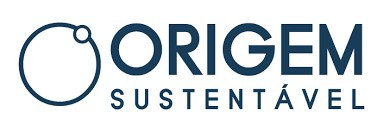Sustainable Origin is among the few, if not the only, ESG and sustainability certification in the world aimed at companies in the footwear supply chain. Based on sustainability best practices, it follows five dimensional indicators: economic, environmental, social, cultural and sustainability management and is promoted by the Brazilian trade associations Abicalcados (footwear industry) and Assintecal (components industry).
It is one of the most comprehensive sustainability and ESG certifications for companies in the footwear supply chain. More than a certification, it is a guide for Brazilian companies based on what is most up-to-date in sustainability practices, in line with other important global references. This guide is based on 104 indicators, covering five areas, which show how companies generate a lower environmental impact, a better social contribution and an intelligent economy in their production processes. Important partners (Bureau Veritas, SGS, ABNT, SENAI, Intertek, DNV) are accredited to verify and certify the performance of all certification indicators. There are currently 90 Brazilian companies involved in the project, of which about 30 are already certified.
Sustainable Origin represents a great opportunity for companies to align production processes with internationally recognised indicators, expanding opportunities in the export market and driving the sustainable growth of the entire production chain.
The initial phases of the programme were formulated with the support of researchers and experts from the University of São Paulo (USP) who, through the work of the USP Polytechnic School of Sustainability Laboratory (LASSU), developed a project proposal with indicators to guide the assessment of sustainability in the footwear sector. Assintecal, as the representative body of component companies in the footwear industry, played a primary role in stimulating the practical construction of a programme that, in 2013, became a pilot project to be applied in market practice and test its operation and feasibility with footwear and component companies.
We should point out that Brazil is the fifth largest footwear producing country in the world, with more than 860 million pairs of shoes produced every year, exported to over 170 countries worldwide, worth more than 6 billion dollars, and 280 thousand people directly employed. But that’s not all: Brazil can count on over 130 years’ experience in footwear production (the first factory dates back to 1888), and 5600 companies are currently present in the country. As far as the lining market is concerned, Brazil is the fourth largest consumer of footwear in the world and around 85% of the country’s production is destined for its own citizens. The supply chain is among the most organised in the world and involves around 10,000 companies, employing around 355,000 people directly. But it is also a sustainable chain. Brazil has the lowest CO2 emissions (KG/GDP) compared to the largest shoe manufacturers in the world, as well as the highest level of renewable energy consumption (solar, wind, hydro and other renewable energy sources) compared to the largest shoe manufacturers in the world. In addition, more than USD 450 million a year is invested in innovative activities, 47% of which concern environmental innovations.



